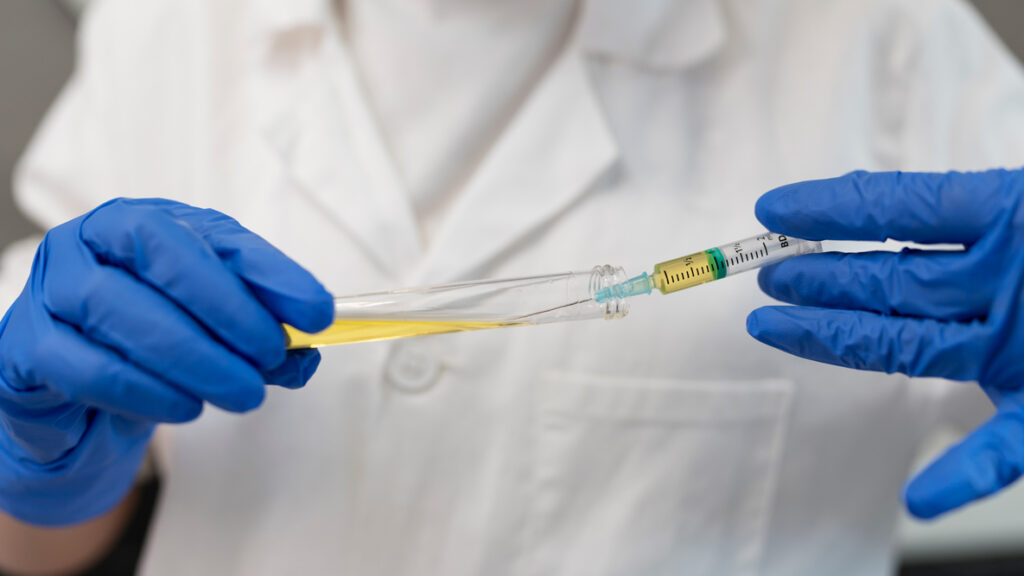The purpose of ICSI is to overcome male infertility factors that can block fertilization and prevent pregnancy. Intracytoplasmic sperm injection (ICSI) may result in a successful pregnancy for those who are infertile. When there are concerns with male infertility, this kind of in vitro fertilization (IVF) is most beneficial. Many best IVF center in Kerala, offers ICSI which involve the injection of a single sperm into an egg, which has been surgically removed from a woman’s ovary. There are many reasons why ICSI might be indicated. Learn more here!
Intracytoplasmic Sperm Injection (ICSI)
Intracytoplasmic sperm injection (ICSI) is an assisted reproductive technology (ART) – a fertility treatment that involves injecting a single sperm into an egg. During IVF, eggs are retrieved from the woman’s ovaries and fertilized with sperm in a lab.
When to consider ICSI?
If you are a person with;
- Anejaculation (inability to ejaculate).
- When other fertility treatments have failed.
- Low sperm quality/quantity.
- Retrograde ejaculation (semen flows backwards into the bladder).
- Blockage in the male reproductive system.
- The person supplying the eggs is older than 35.
- You’re using previously frozen eggs or sperm (cryopreservation) to try to conceive.
- It can also be used when the male partner has a genetic condition that could be passed on to the child.
- It can also be used if the man has a low sperm count or if his sperm are unable to fertilize an egg on their own.
If you’re considering ICSI, it’s important to consult with a fertility specialist to discuss your options and whether this treatment is right for you. It is usually done in combination with in vitro fertilization (IVF). During this, one of the retrieved eggs is placed under a microscope and injected with a single sperm using a very fine needle. The egg is then placed in a culture dish where it will hopefully fertilize and begin to grow.
If the ICSI procedure results in fertilization, the embryo will then be transferred to the woman’s uterus 3-5 days later. The success rates vary depending on factors such as the age of the woman and the cause of infertility. Overall, about 70% of eggs injected with sperm will become fertilized. Of these, 50-60% will implant in the uterus and result in pregnancy. But the success rate is typically around 50-70% per cycle.
Process of Intra Cytoplasmic Sperm Injection
- Your medical professional will be performing the procedure;
- Holds the mature egg in place on a lab dish using a pipette.
- Using a tiny needle immobilizes and removes one sperm.
- The needle is inserted into the egg to access the cytoplasm.
- Sperm is injected into the cytoplasm.
- Takes the needle out of the egg.
How Common is ICSI?
ICSI is the most common type of in vitro fertilization (IVF). According to the American Society for Reproductive Medicine, approximately 60 per cent of IVF procedures now involve ICSI. Approximately one in every six couples who seek fertility treatment will need ICSI.
ICSI is often recommended for couples who have failed to conceive after multiple rounds of IVF, as well as for those with a male factor infertility diagnosis. In cases of male factor infertility, ICSI can directly address issues with sperm quality or quantity. ICSI can also be used when there are concerns about the fertilization process during IVF, or when there are very few eggs available for retrieval. Since its introduction, ICSI has helped countless couples achieve their dream of starting a family.
What advantages do intracytoplasmic sperm injections have?
- Seems to be more effective than conventional IVF.
- Regardless of the infertility diagnosis, some clinics provide ICSI to all patients.
- Increase the chance of pregnancy for couples who have had unsuccessful IVF cycles.
- It can be used to fertilize eggs that have been frozen for future use.
- Help preserve genetic material for future generations.
ICSI is not without risks. What are the ICSI risks?
- Damage is caused by needle penetration to some or all of the eggs.
- After the sperm injection, an egg does not become fertile.
- In a lab setting or upon embryo transfer, an embryo stops growing.
- The chance that more than one embryo may implant in the uterus, which can lead to twins or triplets.
- Risk for genetic abnormalities in children conceived through this method.
Other Methods for Treating Male Infertility
While ICSI is the most common and effective method of treating male infertility, other methods can be used.
-Intrauterine insemination (IUI)
-In vitro fertilization (IVF)
-Testicular sperm extraction (TESE)
-Assisted hatching
Conclusion
If you’re considering Intracytoplasmic Sperm Injection (ICSI) as a treatment for infertility, it’s important to be well-informed about the procedure. Although IVF treatment cost in Kerala is so affordable, ICSI can be successful in helping couples conceive. But is not without risks — both to the mother and the child. Be sure to discuss all of your options with your doctor before making any decisions.


